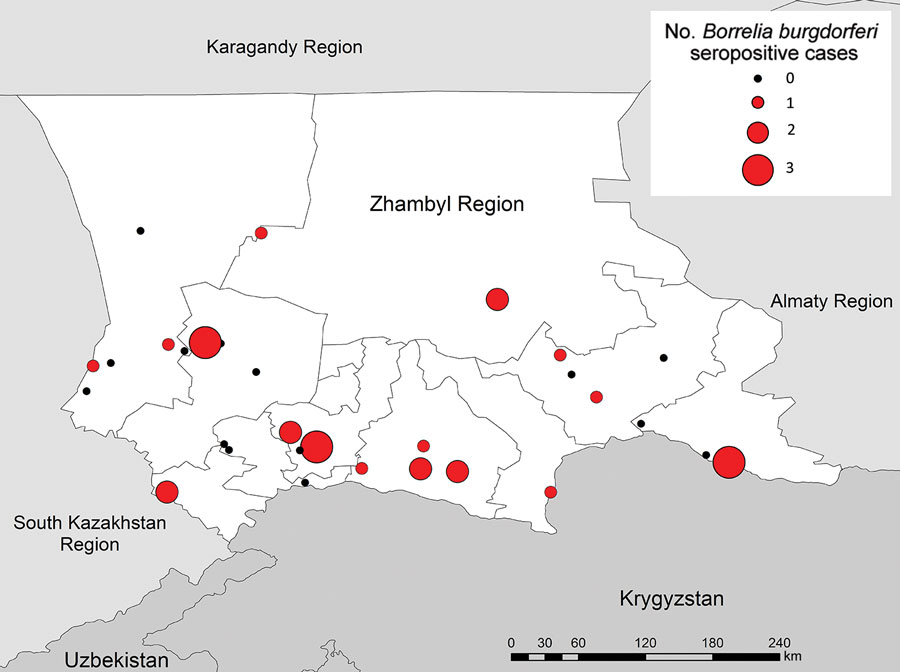Volume 26, Number 1—January 2020
Research
Risk Factors for and Seroprevalence of Tickborne Zoonotic Diseases among Livestock Owners, Kazakhstan
Figure 2

Figure 2. Number of Borrelia burgdorferi–seropositive cases in villages included in serologic survey for tickborne diseases, Zhambyl region, Kazakhstan. Circle size denotes the number of IgG antibody–positive serology results indicating past exposure to B. burgdorferi.
Page created: December 18, 2019
Page updated: December 18, 2019
Page reviewed: December 18, 2019
The conclusions, findings, and opinions expressed by authors contributing to this journal do not necessarily reflect the official position of the U.S. Department of Health and Human Services, the Public Health Service, the Centers for Disease Control and Prevention, or the authors' affiliated institutions. Use of trade names is for identification only and does not imply endorsement by any of the groups named above.